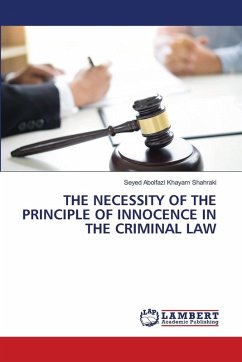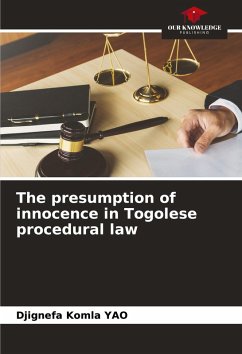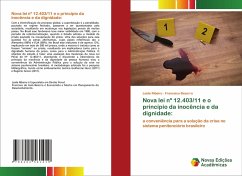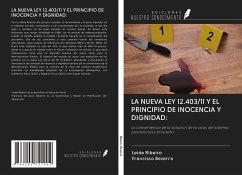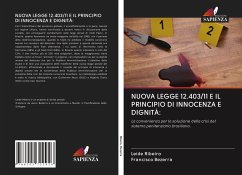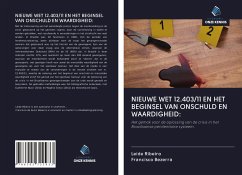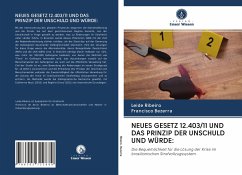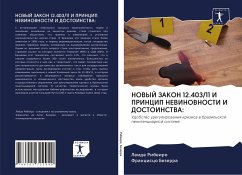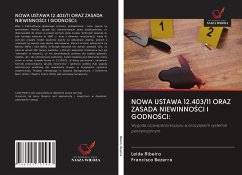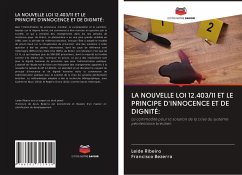
NEW LAW 12.403/11 AND THE PRINCIPLE OF INNOCENCE AND DIGNITY:
The convenience for the solution of the crisis in the Brazilian penitentiary system.
Versandkostenfrei!
Versandfertig in 1-2 Wochen
25,99 €
inkl. MwSt.

PAYBACK Punkte
13 °P sammeln!
With the intensification of the global process, overcrowding and the penalty, based on the closed regime, began to be questioned by society, resulting in changes in the criminal laws of many countries. In Brazil, this phenomenon had greater visibility in 1980, with the period of redemocratization, when the State adopted the prison model based on the prisoner's recovery. One of the solutions to this question was the alternative sentences, whose reference countries are Germany (98%) and USA (68%). In Brazil this indicator is only 12%, implying more than 500 thousand prisoners, where the majority...
With the intensification of the global process, overcrowding and the penalty, based on the closed regime, began to be questioned by society, resulting in changes in the criminal laws of many countries. In Brazil, this phenomenon had greater visibility in 1980, with the period of redemocratization, when the State adopted the prison model based on the prisoner's recovery. One of the solutions to this question was the alternative sentences, whose reference countries are Germany (98%) and USA (68%). In Brazil this indicator is only 12%, implying more than 500 thousand prisoners, where the majority is treated as if they were "animals" in prison, resulting in implications both for the human dignity of the prisoner and for the Public Administration. The objective of the study is to make an evaluation of the changes in the new Penal Law of Nº 12.403/11, addressing and discussing the observance of the principle of innocence and human dignity and/or the convenience of the Public Administration for the solution of the crisis in the Brazilian prison system. The methodology adopted was the bibliographic research, with Guilherme Nucci (2011) and Rogério Greco (2011) as theoretical bases.



